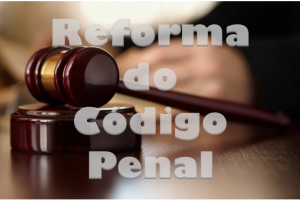
The draft reform of the Penal Code (PLS 236/2012) should be voted on this year. This is expected to happen in the coming months, because on December 10, Senator Vital do Rêgo (PMDB-PB), rapporteur of the project, presented the substitute to the project to the Senate Constitution and Justice Commission (CCJ).
Some changes foreseen in the new code have strong synergy with the work of the Brazilian Institute of Ethics in Competition - ETCO. The list of heinous crimes, for example, must be expanded, including acts of corruption among them. Intellectual property should also be better protected, through art. 178, § 2, item I, which criminalizes the conduct of filming audiovisual work without authorization - one of the most common forms of piracy today.
Still in relation to intellectual property, there was a proposal to change art. 184, but it was not accepted. Thus, the criminal action, in the crime of violation of copyright, remains public and unconditional, and not private, as proposed. Usually, private criminal action is used for crimes that affect the victim's privacy and not society, which does not apply in the case of copyright.
The new code also increases the punishment in the case of slave labor and animal abuse and makes the progression of sentences more rigorous. Today, primary convicts can face half-open prison terms after serving one-sixth of their sentence. The term must change to a minimum of a quarter of the penalty. The text also simplifies processes and encourages consensual conflict resolution, in order to relieve the Judiciary.
Also in December, after five years of processing, the Senate approved the draft of the new Code of Civil Procedure. As in the Penal Code, incentives for conciliation are foreseen, among other measures to speed up the judgment of actions across the country.



